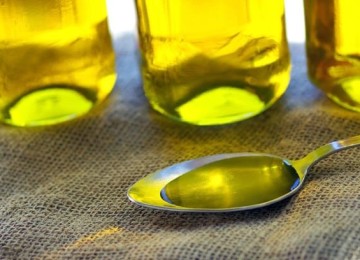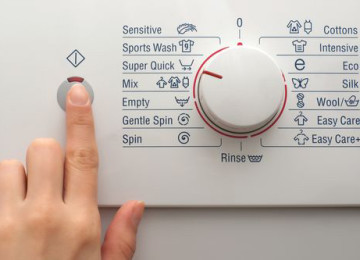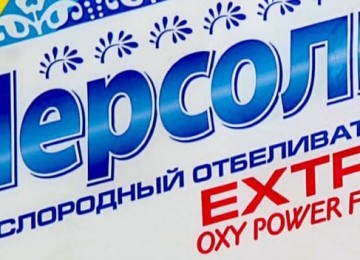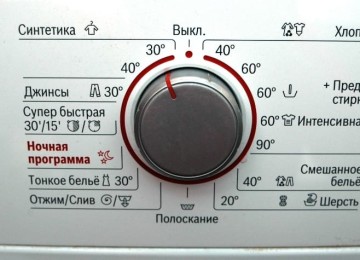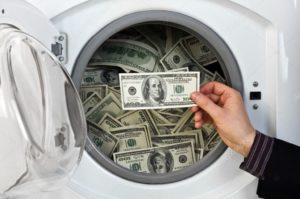 Paper money can undergo various tests. Contamination, burning, marks, tears, getting wet, etc. cannot be ruled out. If you washed your money in a washing machine, there is no point in getting upset ahead of time. Banknotes usually withstand such torture and serve for a long time afterwards. But it all depends on the degree of wear and tear of the money. Put them in order after washing in the washing machine possible in different ways. In extreme cases, you can contact a banking institution and exchange damaged banknotes.
Paper money can undergo various tests. Contamination, burning, marks, tears, getting wet, etc. cannot be ruled out. If you washed your money in a washing machine, there is no point in getting upset ahead of time. Banknotes usually withstand such torture and serve for a long time afterwards. But it all depends on the degree of wear and tear of the money. Put them in order after washing in the washing machine possible in different ways. In extreme cases, you can contact a banking institution and exchange damaged banknotes.
What happens to the money after washing it in the washing machine?
The banknotes are quite durable, made of linen, cotton and soaked in gelatin. With normal cash flow, they last 2-3 years. If by chance the money gets into washing machine, then most often they remain intact, but they can wrinkle and change color. With the maximum washing mode, there is a risk that the money will be torn. Such bills will not be accepted in stores or transport. Here it is better to immediately contact the bank for an exchange.
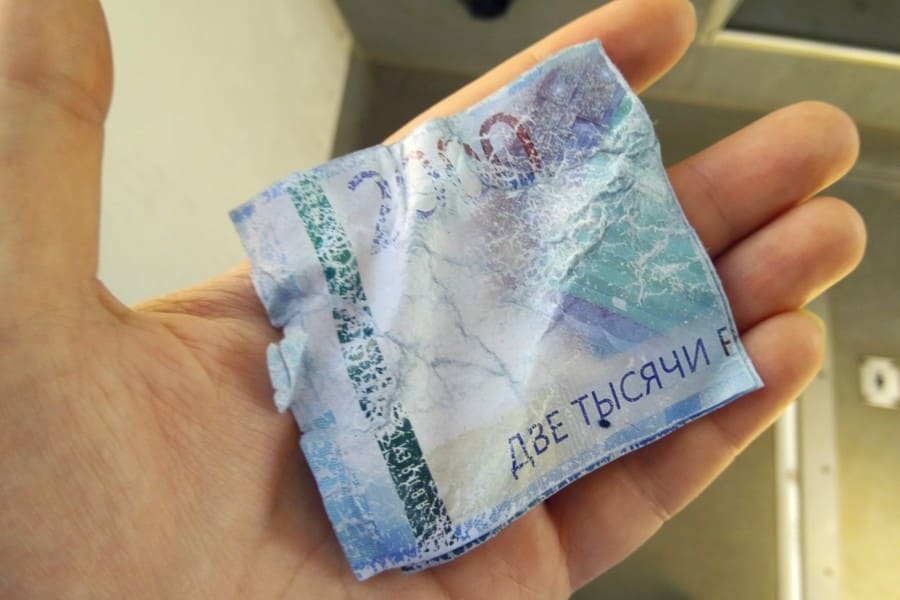
Handwritten recovery of banknotes
If you have washed dollars or other banknotes in a washing machine and they have not lost their appearance, you can try to “reanimate” them yourself.
How to dry money quickly? The best option is to use an iron.
What to do? Need to:
- Take two sheets of clean paper or 2 pieces of gauze, folded into 3-4 layers.
- Place one under the bottom of the bill, the second on top.
- Turn on the iron at medium power.
- Iron the workpiece.
Afterwards the money will level out, dry out and you can use it to pay.
Drying banknotes can be done in other ways, but here the money will remain wrinkled. You can continue to align banknotes without problems in the future.
To allow the bills to dry, place them:
- in the sun in a windless place;
- in the oven at low temperature;
- on the battery (it is advisable to place a sheet of paper underneath);
- near the heater;
- near the stove or fireplace.
Young girls manage to dry and straighten banknotes with hair straighteners, which is no less effective. Paper money dries instantly and is immediately flattened. But in order not to burn the bill, you should put it in paper. This express method is reminiscent of iron drying.
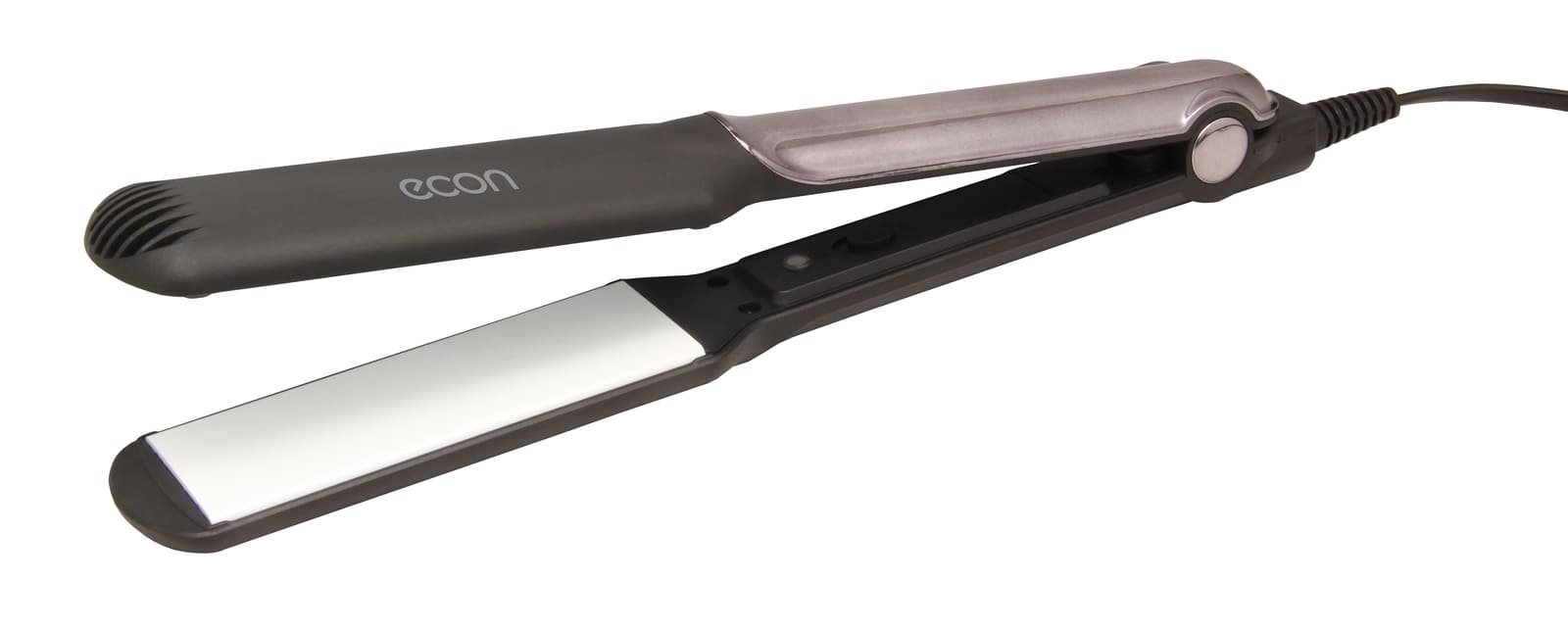
Even if you just put the money in the room after washing, it will dry. Only in time it will drag on for a longer period.
Sometimes, when exposed to ultraviolet light, specific spots may appear on banknotes - this is a fungus. Such damage is more common on foreign currency. It becomes the reason for refusing to accept banknotes.Mold can appear after poor drying or when storing money in dampness or cellophane. From infected dollars, the fungus quickly spreads to neighboring ones. You can remove such stains using:
- Oven. A temperature of 110-120 degrees effectively eliminates the problem.
- Gel-based detergents . The best option is Fairy.
Dirt can be removed with a regular soap solution. After that, the banknotes are dried in one of the above ways.
What to do if the money is torn after washing in a washing machine
? If the banknote is torn in half, then there are two options - glue it or go to the bank for an exchange.
If a small part of the banknote has come off or there is a tear, you can coat the damaged area with PVA glue and press it. Such a repair can restore the money, and no one will notice anything.
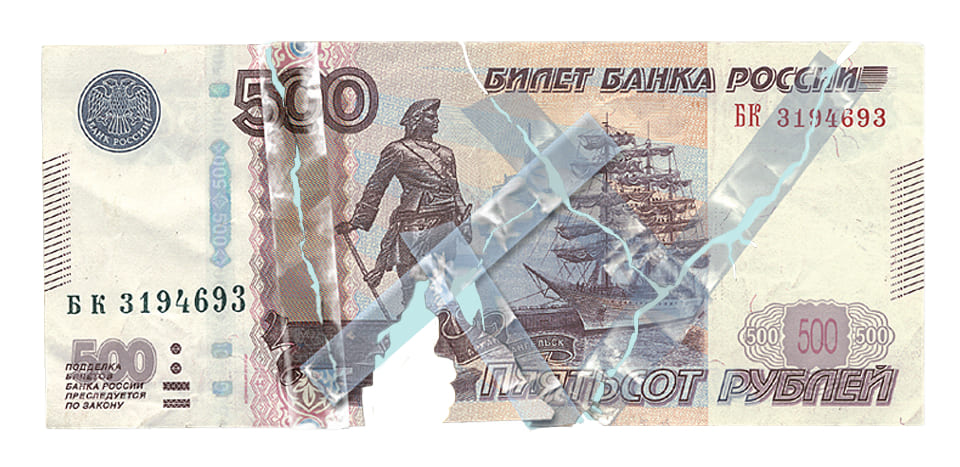
Features of exchanging damaged banknotes Is it possible to exchange money at a bank after washing in a washing machine
? Yes. If they are torn or badly frayed in the washing machine, go to the exchange office of the relevant institution. They should accept both worn and torn banknotes. The only downside is that there may be a commission fee. Rubles are accepted everywhere and without interest. But with dollars and euros (and other foreign currencies) there may be problems. A commission is charged here - its size depends on the condition of the banknotes.
How to exchange money washed in a washing machine? To do this, a person needs to take a passport, a damaged banknote and come to any bank branch.Mold can appear after poor drying or when storing money in dampness or cellophane. From infected dollars, the fungus quickly spreads to neighboring ones. You can remove such stains using:
Oven. A temperature of 110-120 degrees effectively eliminates the problem.
- Gel-based detergents
- . The best option is Fairy.
- Any dirt can be removed with a regular soap solution. Afterwards, the banknotes are dried using one of the above methods.
What to do if the money is after
washing in the washing machine
- burst? If the bill is torn in half, then there are two options: glue it together or contact the bank for an exchange.
- Gluing will help, but it is not a fact that such money will be accepted. Failure will follow in case of careless gluing. Especially if tape was used. Small denomination bills are sometimes accepted, but large ones are not.
- If a small part of the bill comes off or there is a tear, you can coat the damaged area with PVA glue and press it. This type of repair can recover money without anyone noticing.
Features of exchanging damaged banknotes
washing machine
? Yes. If they are torn or badly frayed in the washing machine, go to the exchange office of the relevant institution. They must accept banknotes, both worn and torn. The only downside is that there may be a commission fee. Rubles are taken everywhere and without interest. But problems may arise with dollars and euros (and other foreign currencies). A commission is charged here - its size depends on the condition of the banknotes. How to exchange money washed in a washing machine? To do this, a person needs to take with him a passport, a damaged banknote and come to any bank branch. You need to contact the cashier.If the employee believes that the money is real and the numbers and denomination are distinguishable on it, then the replacement occurs on the spot. If the banknotes are heavily washed and the cashier doubts their authenticity, then an examination will be needed. The client will be asked to fill out forms, write a statement, leave the damaged bill and pay for the upcoming work. Yes, you will have to pay extra for the examination. It will be appropriate and justified only in the case of checking large sums, dollars and euros. There is no point in checking small denominations, since you will pay more than you receive. You cannot do without an examination if:






